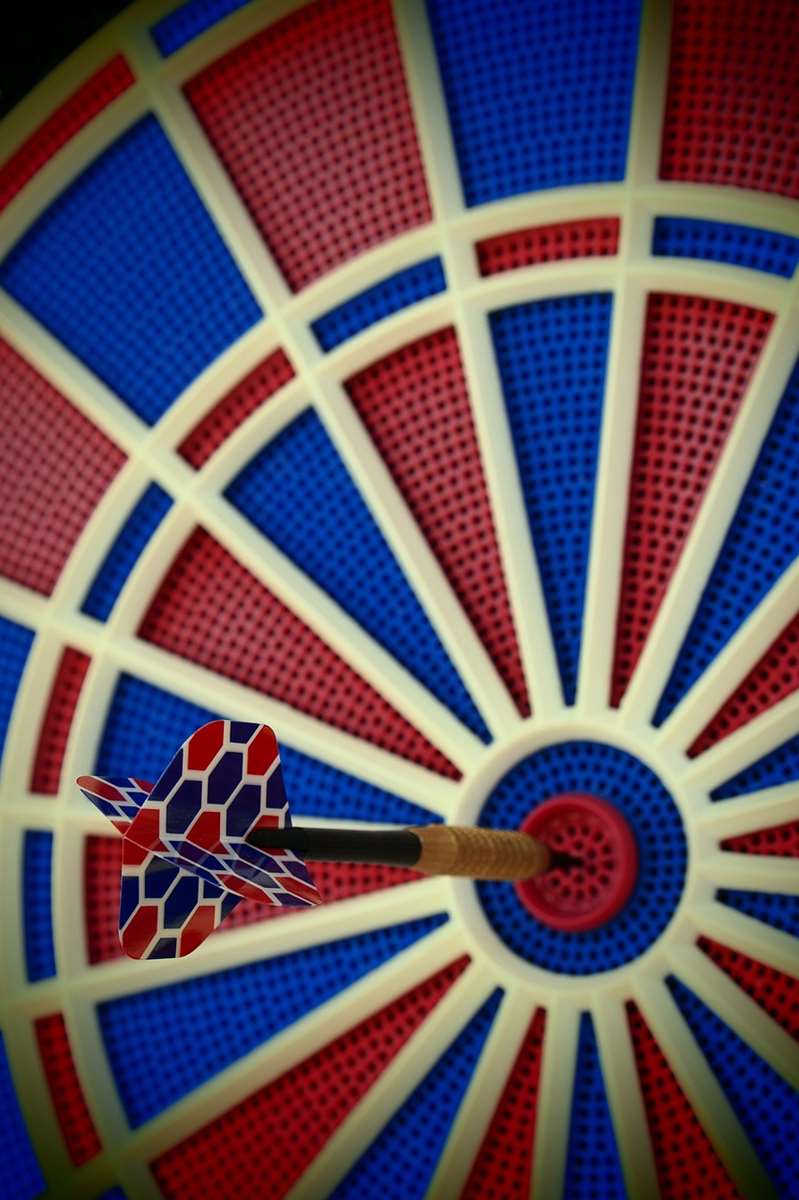Unlocking success in fantasy darts hinges on informed decisions, and this guide provides the **Fantasy Darts Research Resources** you need to dominate your league! This article will explore key websites, data sources, and analytical approaches to give you a competitive edge, covering everything from player statistics to match previews and expert opinions.
⚠️ Still Using Pen & Paper (or a Chalkboard)?! ⚠️
Step into the future! The Dart Counter App handles all the scoring, suggests checkouts, and tracks your stats automatically. It's easier than you think!
Try the Smart Dart Counter App FREE!Ready for an upgrade? Click above!
Essential Websites for Fantasy Darts Research Resources
The internet is brimming with information, but not all of it is created equal. When building your **fantasy darts** team, start with these authoritative websites:
- Official PDC Website (Professional Darts Corporation): The PDC website is your primary source for schedules, results, news, and player profiles. Dig into the archives for historical performance data.
- DartConnect: While often used for live scoring, DartConnect also provides a wealth of match data, including averages, checkout percentages, and 180s per leg. Consider a subscription for advanced analytics.
- Darts Database: This website is a comprehensive historical record of darts results, dating back many years. It’s invaluable for tracking player trends and identifying potential dark horses.
- Third-Party Statistics Sites: Several independent websites compile and analyze darts statistics, often offering unique metrics and visualizations. Search for sites focusing on predictive models or player comparisons.

Remember to critically evaluate the data you find. Consider the source’s reputation, the methodology used to collect and analyze the data, and the context in which the data was gathered. Always cross-reference information from multiple sources to ensure accuracy.
Key Performance Indicators (KPIs) for Fantasy Darts
Identifying the right KPIs is crucial for evaluating players. Don’t just rely on overall averages; delve deeper into these metrics:
- Three-Dart Average: This is the most common measure of player performance, representing the average score achieved with three darts. A higher average generally indicates better consistency and scoring power.
- Checkout Percentage: This metric reflects a player’s ability to finish legs efficiently. A high checkout percentage demonstrates composure and accuracy under pressure.
- 180s Per Leg: The number of 180s (maximum scores) a player hits per leg indicates their scoring potential and ability to put pressure on their opponent.
- First 9 Dart Average: This KPI reveals how well a player starts each leg, reflecting their opening accuracy and consistency.
- Legs Won Against the Throw (LWAT): This statistic measures a player’s ability to break their opponent’s throw, indicating mental fortitude and tactical prowess.
Understanding these KPIs allows you to assess player strengths and weaknesses, predict future performance, and make informed decisions when selecting your **fantasy darts** team. Look for players who excel in multiple areas and demonstrate consistent performance over time.

Advanced Statistics and Their Application
Beyond the basic KPIs, consider exploring advanced statistics that can provide deeper insights:
- Matchroom Sport Rating: An all-encompassing player rating system that considers several key aspects of a darts match.
- Head-to-Head Records: Analyze how players perform against specific opponents. Some players thrive against certain styles, while others struggle.
- Performance Under Pressure: Look for statistics that measure a player’s performance in crucial moments, such as deciding legs or close matches.
Leveraging these advanced statistics can give you a significant edge in **fantasy darts**. For instance, identifying players who consistently perform well under pressure can be a valuable asset in close contests.
Analyzing Match Previews and Expert Opinions
While data is essential, don’t underestimate the value of match previews and expert opinions. Look for reputable sources that provide insightful analysis and informed predictions:
- Darts News Websites and Blogs: Many websites and blogs specialize in darts coverage, offering match previews, player interviews, and expert commentary.
- Social Media: Follow darts experts, players, and analysts on social media for up-to-date news, insights, and opinions.
- Podcasts: Several podcasts dedicated to darts provide in-depth analysis, match previews, and interviews with players and industry figures.

When evaluating match previews and expert opinions, consider the source’s bias and track record. Look for analysts who provide well-reasoned arguments supported by evidence.
Furthermore, consider the context of the match. Factors such as venue, crowd support, and player form can all influence the outcome. Analyze how these factors might affect each player’s performance.
Predictive Models and Fantasy Darts
For a more data-driven approach, consider using predictive models to forecast match outcomes and player performance. These models use statistical algorithms to analyze historical data and identify patterns that can predict future results.
Building your own predictive model can be a complex undertaking, requiring statistical expertise and access to large datasets. However, several readily available models can provide valuable insights. Some fantasy darts players find that building local darts league experience helps them better predict players.
When using predictive models, remember that they are not foolproof. Darts is a dynamic sport, and unexpected events can always occur. Use models as a tool to inform your decisions, but don’t rely on them blindly.

Staying Updated with Real-Time Information
In the fast-paced world of darts, staying updated with real-time information is crucial. Player form can fluctuate rapidly, and unexpected events can occur at any time.
- Live Scores: Monitor live scores to track player performance in real-time. DartConnect and other websites provide live scoring updates for most major tournaments.
- News Alerts: Set up news alerts to receive instant notifications about player injuries, withdrawals, and other significant events.
- Social Media: Follow players and industry figures on social media for up-to-the-minute news and insights. Many people engage in Darts Culture And Community Guide.
Reacting quickly to new information can give you a significant advantage in **fantasy darts**. For example, if a key player withdraws from a tournament due to injury, you can quickly adjust your team to maximize your chances of success.
Building a Sustainable Research Strategy
Success in **fantasy darts** requires a long-term commitment to research and analysis. Develop a sustainable strategy that allows you to consistently gather and evaluate information over time.
- Establish a Routine: Set aside dedicated time each week to research players, analyze statistics, and review match previews.
- Track Your Progress: Keep a record of your research findings and the decisions you make based on that research. This will help you identify what works and what doesn’t.
- Adapt and Evolve: The world of darts is constantly changing. Be prepared to adapt your research strategy as new information becomes available and new trends emerge.

By building a sustainable research strategy, you can stay ahead of the curve and consistently make informed decisions that maximize your chances of success in **fantasy darts**.
Ethical Considerations in Fantasy Darts Research Resources
While gathering **fantasy darts research resources** is essential, it’s important to do so ethically. Avoid using unfair or illegal methods to gain an advantage. Respect the privacy of players and avoid sharing confidential information. Engaging with promoting local darts responsibly is also crucial.
Focus on gathering publicly available information and using your analytical skills to make informed decisions. Remember that the goal of fantasy darts is to have fun and compete fairly.
Conclusion
Mastering **fantasy darts** requires a blend of statistical analysis, insightful observation, and real-time awareness. By leveraging the resources outlined in this guide – essential websites, key performance indicators, expert opinions, and predictive models – you can significantly improve your team selection and decision-making. Remember to stay updated, adapt your strategy, and maintain an ethical approach. Now, put your research skills to the test and dominate your fantasy darts league! Take your knowledge of Organizing Local Darts League and apply it to your fantasy draft!
Hi, I’m Dieter, and I created Dartcounter (Dartcounterapp.com). My motivation wasn’t being a darts expert – quite the opposite! When I first started playing, I loved the game but found keeping accurate scores and tracking stats difficult and distracting.
I figured I couldn’t be the only one struggling with this. So, I decided to build a solution: an easy-to-use application that everyone, no matter their experience level, could use to manage scoring effortlessly.
My goal for Dartcounter was simple: let the app handle the numbers – the scoring, the averages, the stats, even checkout suggestions – so players could focus purely on their throw and enjoying the game. It began as a way to solve my own beginner’s problem, and I’m thrilled it has grown into a helpful tool for the wider darts community.